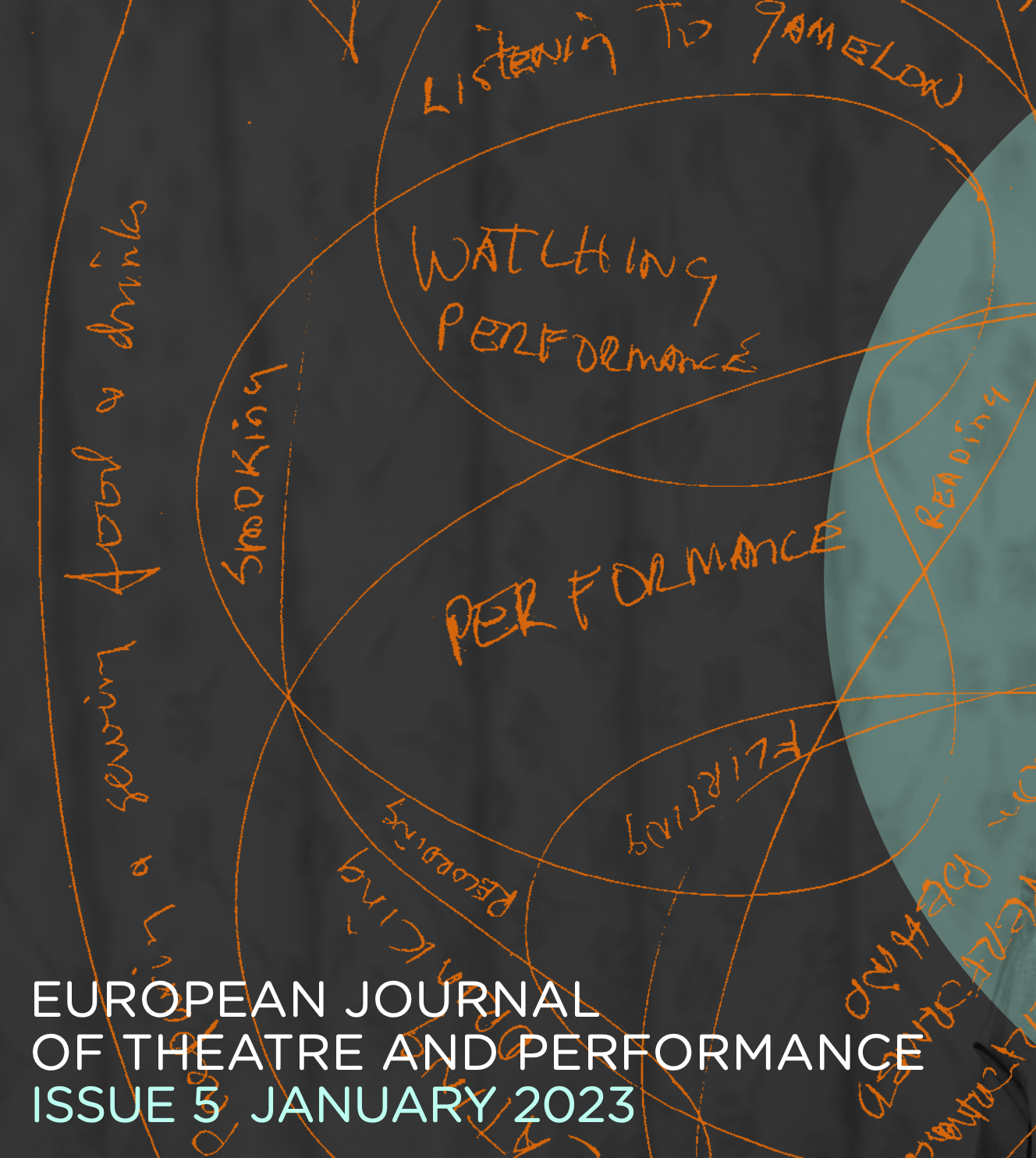EJTP Issue 5 is out!
Discover EJTP issue 5
As the European Journal of Theatre and Performance is now steadily growing into a biannual publication, we are proud to present this fifth issue as a result of the journal’s first open call for contributions. From now on, EJTP will alternate between one specially themed and one general issue per year and authors will have the possibility to submit scholarly articles for future issues at any time.
Our latest issue no. 5 presents scholarly work on a diversity of topics, including the complex question of the construction of history, as Walid Raad demonstrates in his performances around the wars in Lebanon and the Middle East; the use of the mask in Giorgio Strehler’s Il servitore di due padroni; the understanding of how images work as instruments of transmission of memory, starting from the pictures of Isadora Duncan; and the uncomfortable memory of Germany’s Nazi past in conjunction with the colonial construction of human zoos in Oliver Frljić’s production of Kafka’s Ein Bericht für eine Akademie. A common thread is the crossroads between memory, the body, and the archive.
From this issue on, our Artist in Focus section will also alternate with Scholar in Focus section. In 2022, EASTAP nominated the American researcher, theatre director, and author Richard Schechner as an Associate Scholar. We asked Schechner to provide an inside perspective on his research and working process, to give us a glimpse of the work that lies beneath the surface of the printed page.
From the Archives section deals with censorship in Portuguese theatre during the long period of dictatorship (1926-1974). Central is the Teatro Experimental de Cascais. As always, this section is presented alongside many traces from the archives (letters, reports and pictures.)
The Book Reviews section offers five reviews of recent publications within the field of theatre, dance, and performance studies, including two books that shed new light on European theatre history and three others that deal with the role of Orson Welles in stagings of Shakespeare, dance and politics, and scenography.
